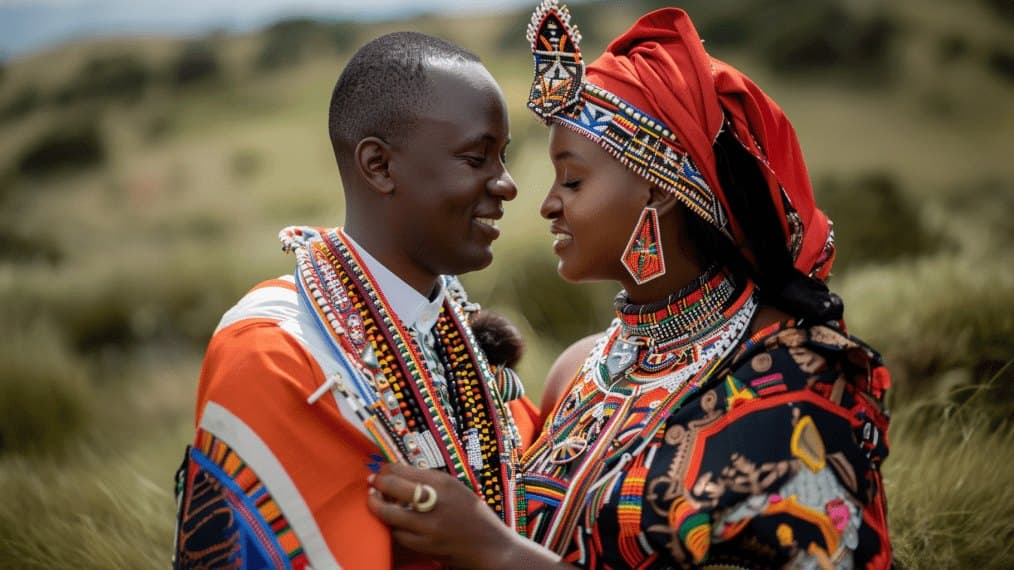We're loading the full news article for you. This includes the article content, images, author information, and related articles.
A landmark High Court ruling compelling women to refund bride price upon divorce has exposed deep-seated gender inequities, trapping women in a clash between customary law and constitutional rights.

NAIROBI – A recent High Court decision is forcing a national reckoning with one of Kenya’s most entrenched cultural practices, ruling that a woman is personally liable for refunding bride price, or dowry, to formally dissolve a customary marriage. The judgment, delivered in Kisii, has ignited a fierce debate, pitting tradition against modern constitutional principles and exposing the precarious financial and social position of women in divorce.
The ruling, in the case of CKN v DMO (Civil Appeal 21B of 2022), was delivered by Justice Dennis Kizito Ng'wono Magare, who affirmed that under Kisii customary law, the return of dowry is the definitive symbol that a marriage has ended. The court held that this obligation falls on the wife, even if the payment was originally made to her parents or guardians. According to the judgment, the wife is responsible for the refund and can later sue her parents for indemnity if they refuse to return the assets. This decision effectively frames dowry not as a gift, but as a refundable deposit central to the legal validity of a customary union.
Compounding the issue, the same ruling declared the concept of alimony incompatible with Article 45 of the Constitution, which guarantees equal rights to both parties in a marriage and at its dissolution. Justice Magare reasoned that alimony is rooted in an outdated patriarchal system where the man was seen as the sole provider. This has created a contentious legal paradox for women's rights advocates: while the court champions gender equality to abolish post-divorce financial support for women, it simultaneously upholds a customary practice that many argue is a cornerstone of gender inequality.
Bride price, known by various names such as ruracio among the Agikuyu or ayie in Luo communities, was traditionally a gesture of appreciation to the bride's family and a mechanism to unite two clans. It often involved livestock and other goods, symbolizing a commitment and validating the marriage and any children born from it.
However, sociologists and gender experts observe that the practice has become increasingly commercialized. The amount demanded can be substantial, often influenced by the bride's level of education, turning the tradition into what critics call a transactional purchase. This commodification, they argue, transforms a woman into property, reinforcing patriarchal power dynamics where a husband feels he has “bought” his wife.
This perception has dangerous consequences. It is often used to justify domestic abuse and control, and it can trap women in violent marriages. Many women hesitate to leave abusive partners due to the immense social and financial pressure the refund demand would place on their families, who may be unable to produce the original dowry, especially if it was paid in livestock that has since multiplied or been sold.
The Kisii court ruling clarified a critical point for many modern Kenyan couples who undergo multiple ceremonies: a marriage that is both customary and statutory (Christian, Civil, etc.) must be dissolved in both forms. A divorce decree from a court dissolves the statutory union, but only the return of dowry can dissolve the customary one. This places a dual burden on women seeking to exit a marriage, requiring them to navigate both the civil legal system and the complex, often uncodified, tenets of customary law.
The Marriage Act of 2014 recognizes customary unions but does not explicitly regulate dowry refunds, leaving interpretation to the courts. This legal grey area has led to varied rulings, though the CKN v DMO case is seen as setting a significant precedent.
The public reaction has been sharply divided, particularly along generational and geographical lines. While some traditionalists and rural communities uphold the ruling as a correct interpretation of custom, many younger, urban Kenyans have criticized it as archaic and unfair to women. A 2025 survey by Mwelekeo Insights revealed that while 53% of Kenyan men still support the tradition, 47% oppose it, citing financial strain and concerns about gender equality.
As Kenya continues to navigate the complex interplay between its diverse cultural heritages and its progressive 2010 Constitution, the debate over bride price recovery stands as a critical test. For now, the courts have affirmed that tradition holds legal weight, leaving women to bear the financial and social cost of its dissolution, a price many argue is far too high for love and freedom.
Keep the conversation in one place—threads here stay linked to the story and in the forums.
Sign in to start a discussion
Start a conversation about this story and keep it linked here.
Other hot threads
E-sports and Gaming Community in Kenya
Active 9 months ago
The Role of Technology in Modern Agriculture (AgriTech)
Active 9 months ago
Popular Recreational Activities Across Counties
Active 9 months ago
Investing in Youth Sports Development Programs
Active 9 months ago